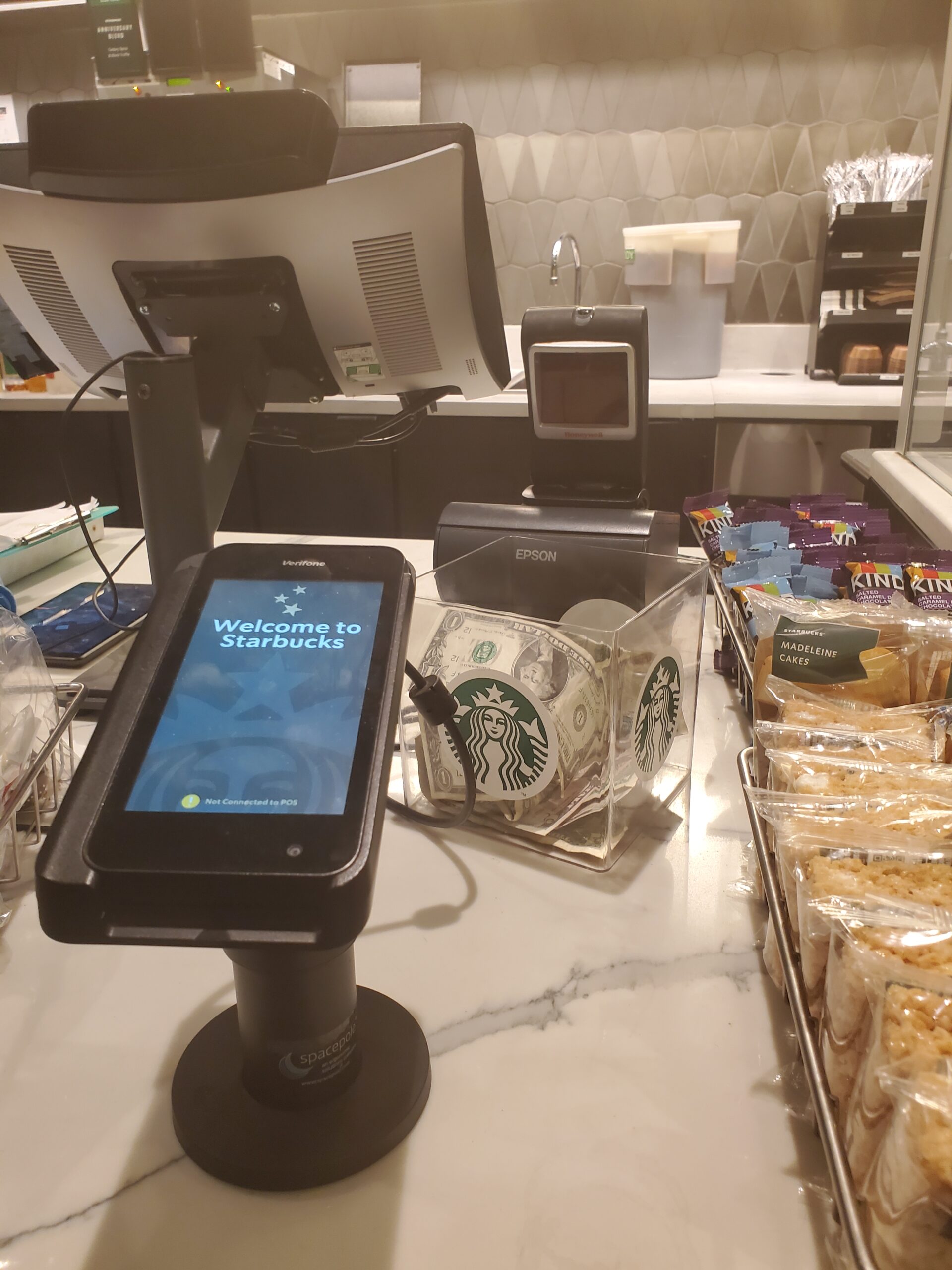There are many opportunities to tip in the United States as it is customary to participate in gratuity or tipping. American franchise “Starbucks” provides customers with multiple ways to tip whether they use cash or credit. Photo by Joseph Sanker
By Joseph Sanker Staff Reporter
“This is ridiculous dude,” said a DoorDash worker said as he hastily places plastic bags full of food at the doorstep of his delivery address and angrily knocks on the door. After a brief moment, he calls the customer and when they answer he says, “Hi, it’s saying zero for the tip, was there a cash tip?” Before he can get a response he is swiftly hung up on, leaving the DoorDash driver frustrated.
Instances like this are captured on video and often go viral on social media which prompts the discussion on tipping culture and the attitudes surrounding it. However, gratuity or “tipping” varies between cultures and different settings.
In the United States, tipping is customary when good to excellent service is received. However, in places like Japan, for example, tipping is not customary as there are already service charges added to bills when receiving services like being waited on at a restaurant.
In fact, according to Japan Experience, a travel website, attempting to tip a service worker in Japan can be looked at as insulting because in Japan there is a special practice of giving people money as a gift where the money is given in a specific type of envelope with a cord.
Shaun Forseth, 28, is a delivery driver for a local restaurant and believes that places like Japan actually have the right attitude toward tipping.
“I think they do it right (in Japan),” Forseth said. “I don’t think that customers should be expected to tip. I think it’s definitely a way for employers to get out of paying their employees a fair, living wage.”
Nonetheless, Forseth still sees the benefits of tipping culture in the United States and believes that due to the cost of living, he would have to stay in an occupation where it is customary to tip.
“If I was to make a switch to another minimum wage job, it would have to be something in service that would make tips. I wouldn’t make enough money to survive anywhere else,” Forseth said. “If I was just like a cashier at McDonald’s, I would be making $15 an hour with no extra income. (At) my job, I make $14 an hour, plus on a good shift I can make $100 in tips in five hours.”
There are videos all over the internet that depict visible frustration or irritation when a food delivery worker does not receive any sort of tip or gratuity for their service. Forseth can relate to that feeling of annoyance when no tip is given.
“(Tipping is) just an expectation at this point. If I was getting paid a decent wage, I wouldn’t expect anyone to tip me. Unfortunately, in the United States it’s just what is expected,” Forseth said. “At the place that I work, I use my own gas, I have to use my time to drive sometimes pretty far to deliver food. (I’m paying for) wear and tear on the car and I (am not) compensated for that besides from tips basically. (Because of that) I definitely get annoyed if I don’t get tips.”
As far as the future of tipping culture is concerned, Forseth believes that people should be compensated fairly by their own employers and not have to rely on tipping culture in the United States.
“You have to tip your movers, you have to tip your cashier at your coffee shop, you have to tip your tattoo artist, so many things (where) tipping is kind of expected here where I think it should be included in the price of whatever service or goods you’re getting,” Forseth said. “Basically, just raise prices and pay people better and just eliminate tipping.”



